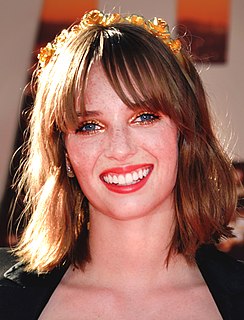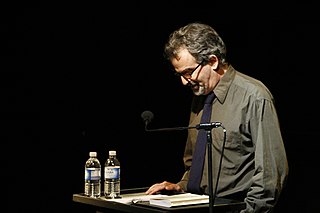A Quote by Louise Gluck
What I responded to, on the page, was the way a poem could liberate, by means of a word's setting, through subtleties of timing, of pacing, that word's full and surprising range of meaning. It seemed to me that simple language best suited this enterprise.
Related Quotes
When I discovered that, through acting, you can speak a beautiful language aloud and have a relationship to language that isn't one that's just eyes-to-page, pen-to-page - it's one that's full-bodied, full-voiced, full-heart... it really opened my heart and made me feel like I could be a storyteller.
Whenever we remember a series of events, we remember them different. We are constantly changing. It's a flaw, but on the other hand, when we say a word, the meaning is not what you put into it. Rather, the meaning of the word is all of the past usages of that word. Like this cloud that makes up the meaning of the word. It's your subject if you write. For instance what you put in that word and what you assume it means, even its flaw. It has a general agreement.
In Eden I "saw" that Adam or Eve probably spoke each word FOR THE FIRST TIME and that seemed wild and seemed to me that that might have brought them to some essence of language. Once I "saw" the city, I knew it was real. once I saw that a poem was a house, i knew it was real and could go back to it or else write a flurry of poems around it, both worked.
If there is one word that describes the meaning of character, it is the word honor. Without honor, civilization would not long exist. Without honor, there could be no dependable contracts, no lasting marriages, no trust or happiness. What does the word honor mean to you? To me, honor is summarized in this expression by the poet Tennyson, "Man's word [of honor] is God in man."






































